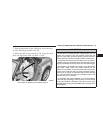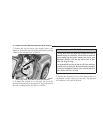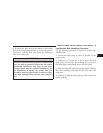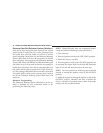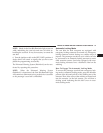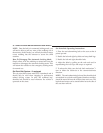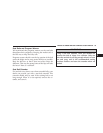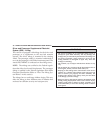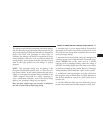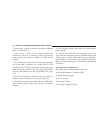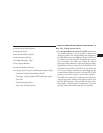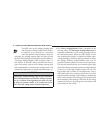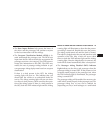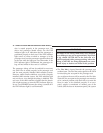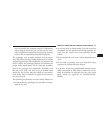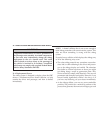
The airbags work with the instrument panel knee bolsters
and the seat belts to provide improved protection for the
driver and passenger. While the seat belts are designed to
protect the driver and passenger in many types of
collisions, the airbags will deploy in moderate to severe
frontal collisions. However, even in collisions where the
airbags deploy, all occupants need the seat belts to keep
them in the right position for the airbags to protect
properly.
NOTE: The passenger airbag may not deploy if the
Occupant Classification System (refer to “How The Air-
bag System Works” in this section) determines the seat is
empty or is occupied by someone that is classified in the
“child” category. This could be a child, a teenager, or
even a small adult. Therefore, even if the driver airbag
deploys, the passenger airbag may not deploy.
Here are some simple steps you can take to minimize
the risk of harm from a deploying airbag.
1. An infant up to 1 year or approximately 20 pounds (9
kg) should never ride in the vehicle, because in the event
of a crash the rear facing child seat places them too close
to the passenger airbag.
2. An infant in rear facing child safety seat, designed for
a child up to one year or approximately 20 pounds (9 kg),
should NEVER ride in the front seat of a vehicle
equipped with a passenger airbag, unless the airbag is
shut OFF. An airbag deployment can cause severe injury
or death to an infant in this position. Refer to “Passenger
Airbag Disabled (PAD) Indicator Light” in this section.
3. A child that is not big enough to wear the vehicle seat
belt properly (refer to information on Child Restraint in
this section) should be secured in a child safety seat or
booster seat.
4. An older child who does not use a child safety seat or
booster seat should ride buckled properly in their seat.
THINGS TO KNOW BEFORE STARTING YOUR VEHICLE 41
2



